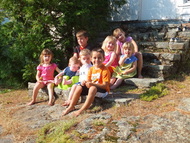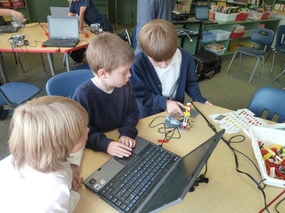
It is often far too easy to dwell on the dark possibilities of life. But, as parents, we can not and should not go there. Quite the contrary, this time of year should be a time of giving thanks. Thanks for our children and all of the joy that they bring to our lives. Thanks too, to all of the amazing people in their lives who care for them and support them; the people who make sure that they don’t “fall between the cracks”.
Many years ago, one of my older sons declared in the middle of Grade 12 that “school is irrelevant” and stopped attending. No amount of begging, lecturing or threatening would make him budge, and if it hadn’t been for a cadre of teachers who were determined to make sure that he didn’t throw everything away in the last weeks of high school, the end of the story might have been quite different. As it was, he graduated, and then took two years off to work as a short-order cook. More angst! Eventually however, as most boys do, he met a girl. She was interested in school and driven to succeed. Fast forward fifteen years and they are both university professors in Winnipeg with two lovely daughters and very successful and satisfying personal and professional lives. And his father? I still remain full of angst - transferred quite seamlessly to my two young sons (how will I ever get Morgan to sit down to his homework rather than gravitating to the computer? Or get Quinn to realize that he no longer lives in Bermuda and has to wear a coat when he goes outside?) and to my grandchildren who are too far away for me to micro-manage in the way that I want to. That is the nature of parenthood. We want the best for our children and woe be to anything or anyone that gets in the way of it!
Sometimes however, we get so focused on the perceived barriers to our children’s future successes, that we forget to reflect to appreciate those circumstances and people who are not holding them back, but propelling them forward. As our children get older, and our direct influence wanes, those factors (the values, the work ethic, and strength of character that we have tried to instill in them) and those people (their teachers, coaches, friends and extended family members) play a greater and greater role in the path that they choose to follow.
As the term draws to a close, and we look forward to celebrating a holiday season that is more about family than about turkeys and presents, it is a great time to be thankful for all of those people who are helping our children along their way. No doubt, if we could be in a hundred places at once, we would try to do it all ourselves but sometimes, we just have to let go, hope for the best, and trust that the foundation that we have built for our daughters and sons will carry them through just fine.
So, from me, this is a letter of thanks to my own children’s teachers, past and present, to their friends (and friends’ parents) and to the hosts of cousins, Aunts and Uncles, and Grandparents who have been such an important part of their lives. You don’t relieve my angst, but somehow you make it all come together for my kids.
Have a wonderful holiday!



 RSS Feed
RSS Feed
